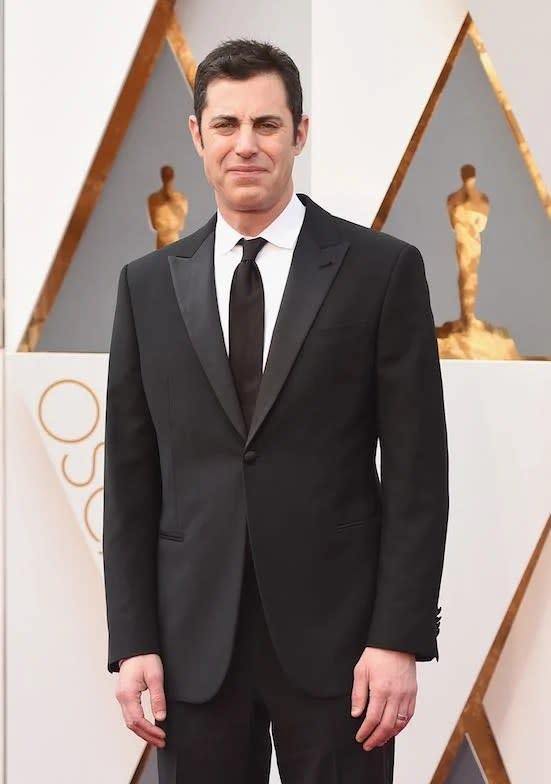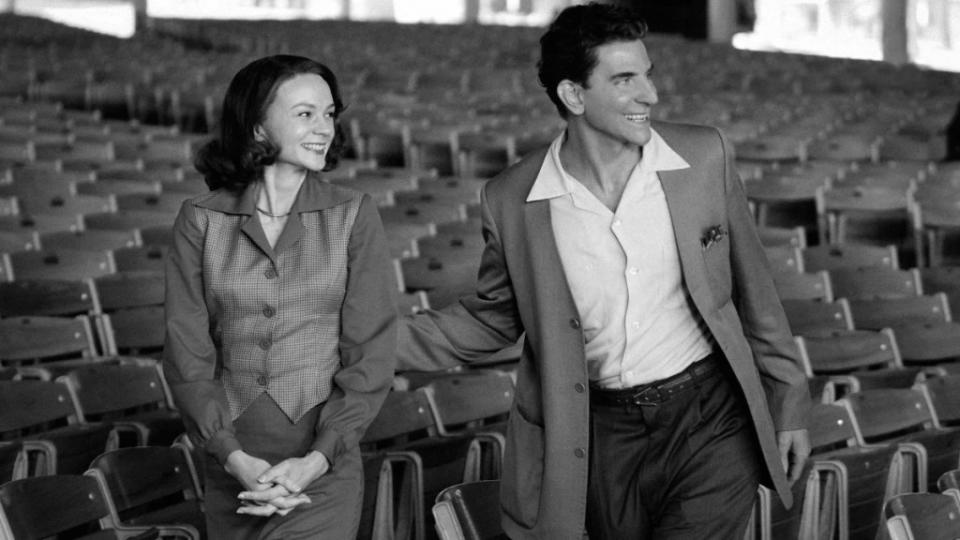‘Maestro’ Cowriter Explains How Bradley Cooper Evolved the Existing Script: ‘It Was Pretty Intense’
- Oops!Something went wrong.Please try again later.
- Oops!Something went wrong.Please try again later.
A version of this story about “Maestro” first appeared in the Race Begins issue of TheWrap magazine.
There is a list of formidable men and women who strangely have not yet received the full biopic treatment: Frank Sinatra, Eleanor Roosevelt, Richard Pryor, the Wright Brothers. And for years, the famed composer and conductor Leonard Bernstein was on that list. Film projects stalled and switched studios and directors (Steven Spielberg and Martin Scorsese were among them) over the last decade.
Until now, with Bradley Cooper’s “Maestro” (in theaters starting Nov. 22 and on Netflix Dec. 20) finally telling the great, complex man’s story.
But the telling is not a conventional one. “I had spent three years wandering in the desert and researching Leonard Bernstein,” said Oscar-winner Josh Singer (“Spotlight”), the film’s cowriter, along with Cooper, who has been involved in the project since Scorsese was attached about nine years ago.
“My first drafts focused on Lenny’s early career in the ’40s and ’50s. How his wife Felicia grounded him was central, but my efforts were more centered on Lenny and his creative struggles.”
That focus changed when Cooper came on board in 2018. “Bradley was fascinated by this very modern, progressive marriage, which had this universal story about the many ways in which love can manifest,” Singer said.

Carey Mulligan, billed above Cooper in the credits, plays Bernstein’s wife, the Chilean actress Felicia Montealegre. “It’s a love story about the deals we make in marriage, which is why there are very few scenes in the movie that are solely about Lenny’s career or achievements,” Singer said. “Sure, we cover a fair amount of Lenny’s creative life, but it’s generally through the lens of his relationship with Felicia.”
Their relationship, while tender and loving, was complicated by Bernstein’s frequent affairs with men — an aspect of his life that the film addresses from the very top. Singer had read several Bernstein biographies, but, he said, “I’d also gone to the Library of Congress, where they’d recently unsealed a treasure trove of love letters between Lenny and his gay lovers, as well as letters between Lenny and Felicia talking of his queer life.”
In his early drafts, Singer had not deeply explored the later decades of Bernstein, who died in 1990 at age 72. But Cooper was insistent that the biopic needed to extend through the 1970s and ’80s, to include the breakdown (and rebuilding) of the marriage.
“Bradley came to the project and very much wanted to go there,” said Singer. “I love doing the research, so I’m used to going deep. But I’m not used to struggling to keep up, as it was with Bradley as we were writing. It was pretty intense, but that’s how you get at the heart of something.”
Music was also instrumental to Singer in the writing process. “It was our secret weapon,” he said. The film’s score is credited entirely to Bernstein, and there were certain song choices that were mapped out in the script stage.

“Bradley wanted to limit the amount of ‘West Side Story’ in the movie. Lenny himself didn’t want to be remembered just for ‘West Side Story,’ so in the whole film we only hear ‘Prologue,’ which Bradley uses in a tongue-in-cheek, inside-joke kind of way.” (The scene involves Bernstein pulling up the driveway of his home with several friends, much to his wife’s chagrin.)
Singer added, “The scenes where Lenny and Felicia are separated are among the few dry (music-less) sequences in the whole movie. They have lost the thread so there is no music. And then he conducts the Resurrection Symphony (No. 2) by Mahler. And it’s in the moment when he himself and his marriage are resurrected, with Felicia coming to Ely Cathedral to reunite with him.”
Singer’s other credits include the fact-based “First Man” and “The Post,” and he uttered one word when asked about the greatest challenge of getting a real person’s story right.
“Authenticity,” he said. “Getting beyond a thumbnail sketch can be done only with a ton of research. But to truly capture those people, you need a director and actors who are every bit as committed as you are as a writer. That’s where I think Bradley and Carey have truly gone above and beyond. And I think that’s why (Bernstein’s three children) love the movie. Not because it’s any kind of hagiography, but because we managed to capture the essence of Bernstein, warts and all, along with Felicia and their marriage.”
This story about “Maestro” first appeared in the Race Begins issue of TheWrap magazine.
Read more from the Race Begins issue here.

The post ‘Maestro’ Cowriter Explains How Bradley Cooper Evolved the Existing Script: ‘It Was Pretty Intense’ appeared first on TheWrap.

